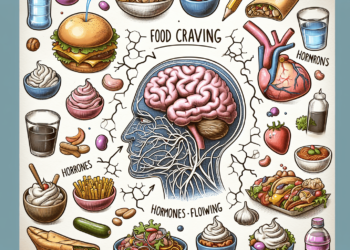What Deficiency Causes Chocolate Cravings?
What deficiency causes chocolate cravings?

Introduction
Have you ever found yourself reaching for a chocolate bar when you’re feeling stressed or tired? Chocolate cravings are more common than you think, and they often indicate something more than just a sweet tooth. In this article, we will explore the potential deficiencies that could be causing your intense chocolate cravings.
The Link Between Cravings and Deficiencies
You may be wondering, why do cravings occur when our bodies are lacking certain nutrients? When we have a deficiency, our bodies send signals to our brain to seek out foods that contain those missing nutrients. This is why you might find yourself craving chocolate when you’re deficient in certain vitamins or minerals.
Common Nutritional Deficiencies
There are several common nutritional deficiencies that can lead to intense cravings, including magnesium, iron, and zinc. Let’s take a closer look at each of these deficiencies and how they may be causing you to reach for that chocolate bar.
Magnesium Deficiency
Magnesium is an essential mineral that plays a crucial role in various bodily functions, including muscle and nerve function, energy production, and bone health. A deficiency in magnesium can result in symptoms such as muscle cramps, fatigue, and even anxiety. Chocolate is a rich source of magnesium, which is why you may crave it when your body is lacking this vital mineral.
Iron Deficiency
Iron is necessary for the production of red blood cells, which help transport oxygen throughout the body. When you’re deficient in iron, you may experience symptoms such as fatigue, weakness, and pale skin. Chocolate, especially dark chocolate, contains small amounts of iron, making it an appealing choice for individuals with an iron deficiency.
Zinc Deficiency
Zinc is a mineral that is essential for immune function, wound healing, and DNA synthesis. A deficiency in zinc can lead to symptoms such as weakened immune system, slow wound healing, and loss of appetite. Chocolate cravings are often associated with zinc deficiency, as chocolate contains small amounts of this essential mineral.
How to Address Nutritional Deficiencies
If you suspect that your chocolate cravings are due to a nutritional deficiency, it’s essential to address the root cause by incorporating nutrient-rich foods into your diet. Here are some tips on how to address common deficiencies that may be causing your chocolate cravings:
Increase Intake of Magnesium-Rich Foods
To address a magnesium deficiency, consider adding more magnesium-rich foods to your diet, such as nuts, seeds, leafy green vegetables, and whole grains. By consuming a balanced diet that includes these foods, you can help meet your body’s magnesium needs and reduce your chocolate cravings.
Include Iron-Rich Foods in Your Diet
If you’re deficient in iron, make sure to include iron-rich foods in your meals, such as lean meats, fish, beans, and fortified cereals. Pairing these foods with sources of vitamin C can enhance iron absorption and support your body’s ability to maintain healthy iron levels.
Consume Zinc-Rich Foods
To address a zinc deficiency, incorporate zinc-rich foods into your diet, such as oysters, beef, chickpeas, and pumpkin seeds. By ensuring that you’re getting an adequate amount of zinc from your diet, you can help alleviate your chocolate cravings and support your overall health.

Alternative Strategies to Manage Cravings
While addressing nutritional deficiencies is crucial in managing chocolate cravings, there are also other strategies you can use to curb your cravings and maintain a balanced diet. Here are some alternative approaches to help you manage your chocolate cravings effectively:
Practice Mindful Eating
Mindful eating involves paying attention to your food choices, eating habits, and hunger cues without judgment. By practicing mindful eating, you can become more aware of your cravings and make healthier choices that align with your nutritional needs.
Stay Hydrated
Sometimes, what we perceive as cravings may actually be our body’s way of signaling thirst. To prevent dehydration and minimize unnecessary cravings, make sure to drink an adequate amount of water throughout the day.
Manage Stress Levels
Stress can trigger cravings for comfort foods like chocolate, so it’s essential to find healthy ways to manage stress and relax. Incorporating stress-reducing activities into your daily routine, such as meditation, yoga, or exercise, can help prevent stress-related cravings and improve your overall well-being.
Seek Professional Help
If you’re struggling to manage your chocolate cravings despite making dietary changes and implementing alternative strategies, consider seeking help from a healthcare professional. A registered dietitian or nutritionist can provide personalized recommendations based on your unique needs and help you address any underlying health concerns contributing to your cravings.
Conclusion
In conclusion, chocolate cravings can be a sign that your body is lacking essential nutrients such as magnesium, iron, or zinc. By addressing these deficiencies through dietary changes and lifestyle modifications, you can effectively manage your cravings and support your overall well-being. Remember to listen to your body’s signals, practice healthy eating habits, and seek professional help if needed to achieve a balanced and nutritious diet.




